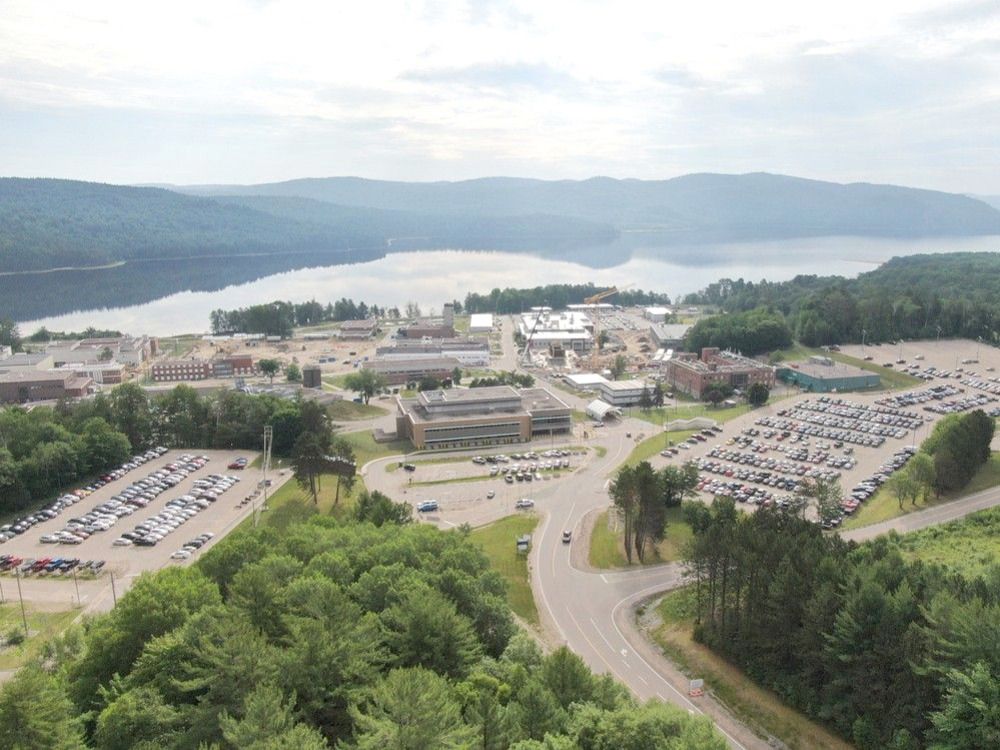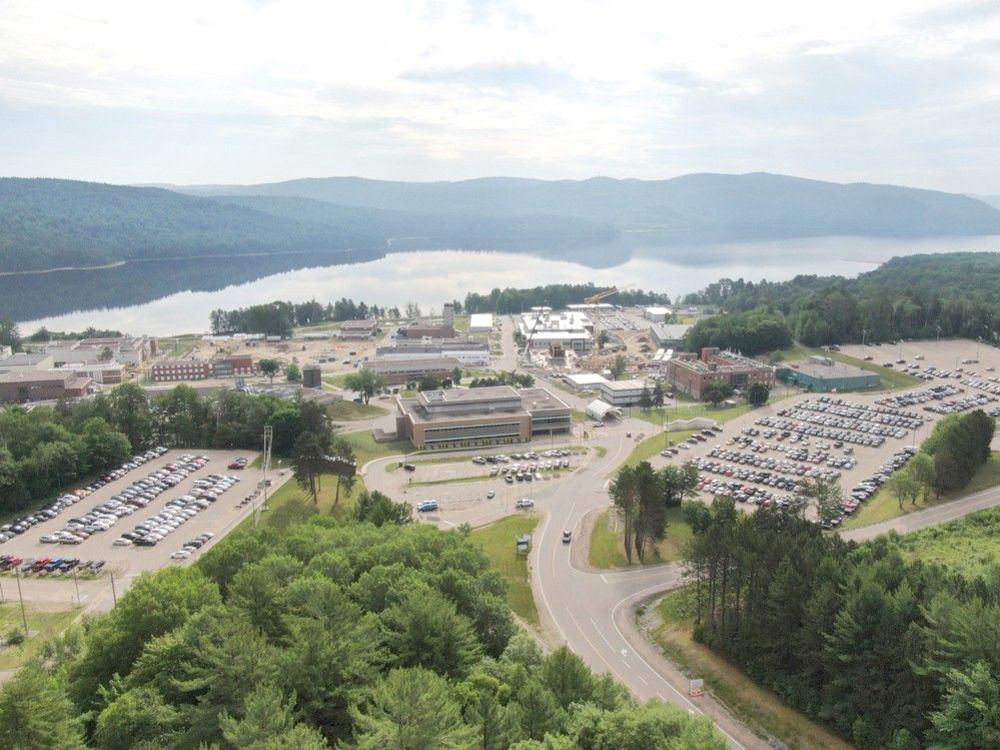
OTTAWA — As Canada is pledging to move away from the United States in the defence sector, critics are warning the federal government it might want to take a closer look at a Crown corporation’s recent decision to award a contract to a U.S.-based joint venture for the management of the country’s nuclear laboratories for possibly the next 20 years.
On June 12, Atomic Energy of Canada Limited (AECL) announced that Nuclear Laboratory Partners of Canada Inc. — a partnership with three primary joint venture partners and one key subcontractor — had been selected to manage Canadian Nuclear Laboratories (CNL). Those include mainly Chalk River Laboratories, the birthplace of the CANDU reactor.
The management contract is valued at $1.2 billion per year on average, for six years, but could be extended up to a total of 20 years based on performance indicators.
Even though AECL’s bidding process began in 2023 — long before U.S. President Donald Trump was elected to a second term and started threatening Canada’s sovereignty — sources familiar with the matter are questioning why AECL chose to work with firms mainly based in the U.S. to manage Canada’s sensitive technologies in the nuclear sector.
“Given the current circumstances in Canada-U.S. relations, I think it’s troubling that a contract of this magnitude would be awarded to a U.S.-based consortium,” said one of the sources who spoke to the National Post on the condition of anonymity because they were not authorized to discuss the matter publicly.
“Now, Chalk River labs are going to be managed by American firms that are deeply involved in the American military and defence industrial complex on the nuclear side,” they added.
Margaret McCuaig-Johnston, who served as assistant deputy minister for Energy Technology and Programs at Natural Resources Canada, was just as surprised to hear about the contract: “Why on Earth do we not have the skill set to do this in Canada?”
“If this government is really serious about protecting our vulnerabilities and building capacity in Canada and strengthening Canadian companies… why would they farm out the management of our precious technology, especially something as unique as nuclear?” added McCuaig-Johnston, now a senior fellow at the University of Ottawa.
Despite its name, Nuclear Laboratory Partners of Canada Inc. is composed mostly of U.S.-based partners. It will be spearheaded by Virginia-based BWXT — an important supplier to the U.S. Defence Department. The other partners are Amentum — also based in Virginia — and Kinectrics Inc. — a company based in Toronto but
bought by BWXT earlier this year
.
Its key subcontractor, Ohio-based Batelle Memorial Institute, is the world’s largest research and development organization and manages national laboratories, including for the U.S. Department of Energy and the U.S. Department of Homeland Security.
American executive Dennis Carr will assume responsibility of CNL as its president and CEO starting in September. Carr, who has more than 40 years of experience in the nuclear sector, was most recently the head of the U.S. Department of Energy’s Savannah River Site and oversaw its national laboratory before he announced his retirement in June.
Earlier this month, Natural Resources Minister Tim Hodgson said the process to select the new management of Canada’s nuclear facilities was done by AECL, independently from the government. He also said the new entity will manage CNL’s 4,000 employees — every one of whom is based in Canada, he said — and that 95 per cent of the money involved will be spent in Canada.
“Canada welcomes companies from all jurisdictions to come here and work. This is money that will be spent in Canada, overseeing Canadian jobs at Canadian facilities,” he said.
In an email, AECL’s director of communications said, as part of its procurement process, the Crown corporation evaluated qualified bidders based on “their capability, experience and expertise,” as well as their ability to deliver on AECL’s priorities, among other things.
“We did not discriminate against companies that are not based in Canada. However, we did look at the management team’s ability to deliver on the scope of work, and understanding the Canadian context played a role in that evaluation,” said Jeremy Latta.
Latta said while the joint venture partners are indeed U.S.-based, half of their management team will be Canadian. In addition, all members of the executive team, including the incoming CEO, are contractually required to be based in Canada.
For the past decade, CNL was managed by Canadian National Energy Alliance, a consortium made of SNC-Lavalin (now AtkinsRéalis), Jacobs Engineering — which has since merged with Amentum — and Fluor Federal Services — an engineering and construction firm based in Texas. The contract is set to expire in September.
Sources said AtkinsRéalis was interested in pursuing the management of CNL but ultimately dropped out of the bidding. In the end, Nuclear Laboratory Partners of Canada Inc. was the only bidder left. A source described AECL as not being “incredibly transparent” with Natural Resources Canada and former minister Jonathan Wilkinson.
Wilkinson declined an interview request about AECL’s bidding process.
Chris Keefer, president of Canadians for Nuclear Energy, said he does not lay blame on Hodgson for this situation, adding “it’s a process that had been locked in for several years.” But he expressed concern that U.S. partners will be overseeing nuclear sites that could be called upon to defend Canada’s sovereignty, including in the Arctic.
“We need to open potential seaways as climate change comes in, we need to defend against threats from Russia,” he said. “It’d be really smart to have nuclear icebreakers.”
McCuaig-Johnston said then prime minister Brian Mulroney announced in 1987 that Canada was going to have a fleet of nuclear-powered submarines to patrol the Arctic, but that idea was ultimately rejected two years later because the price tag was too high.
Now that Canada is looking to ramp up defence spending in a dramatic way to meet NATO targets —
set at a summit Wednesday at five per cent of a country’s GDP by 2035
— she suggested the federal government will have a big budget to make those kinds of purchases.
McCuaig-Johnston said Canada needs to be “agile to reflect changing circumstances,” and that means taking a hard look at the management of this country’s nuclear sites.
“We have a window until September, when they take over, to say we’re taking one step back, we’re going to look at this again and we’re going to assess what our other options might be, given that this particular technology is of particular value to Canada,” she said.
One source said they cannot remember a time when there would be this much U.S. involvement in a nuclear facility that has access to Canada’s intellectual property, and cited concerns with intellectual property theft and corporate espionage.
“It definitely doesn’t scream ‘elbows up’ to me.”
National Post
calevesque@postmedia.com
Our website is the place for the latest breaking news, exclusive scoops, longreads and provocative commentary. Please bookmark nationalpost.com and sign up for our newsletters here.
